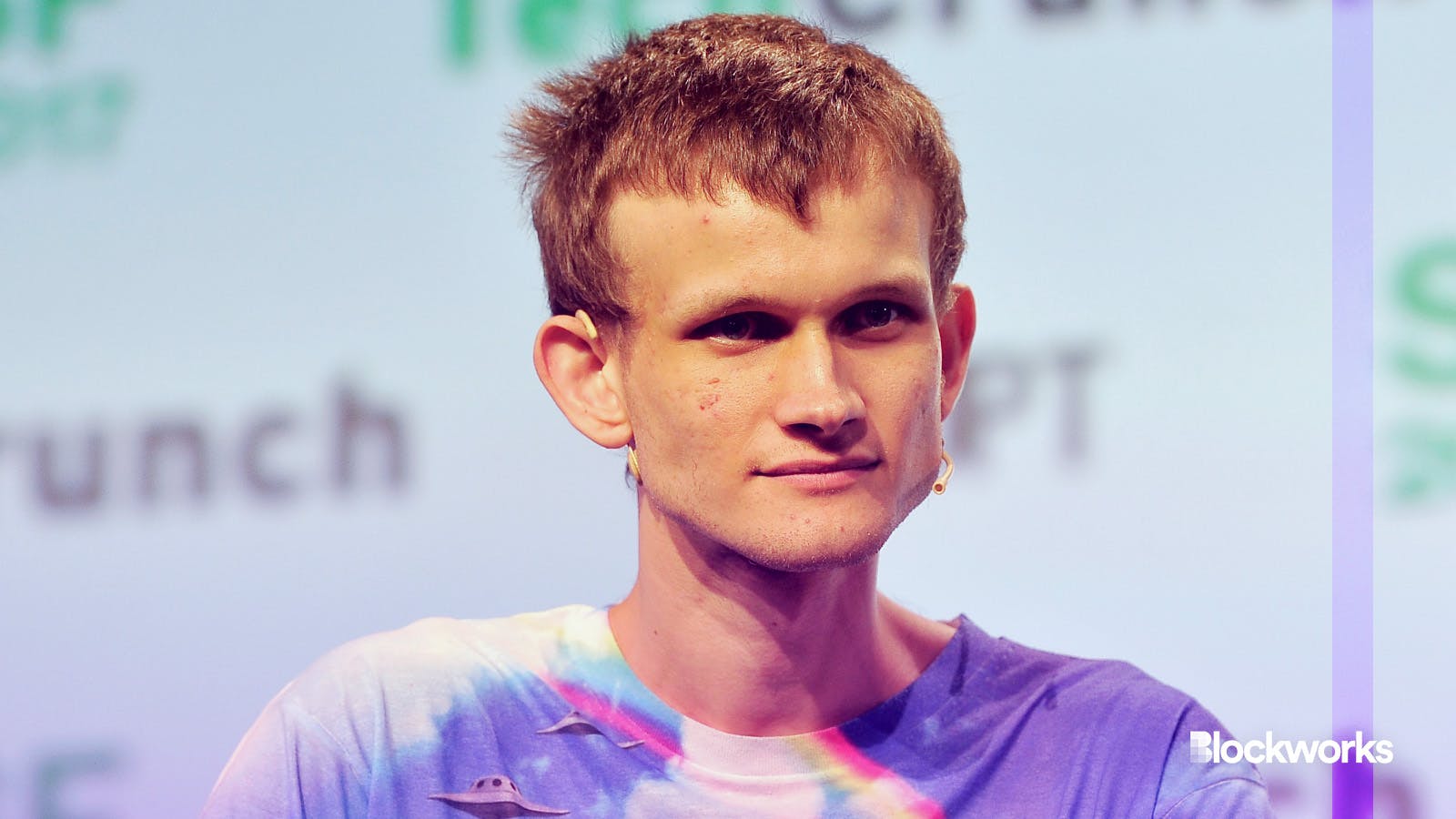It’s Vitalik’s birthday today — and he’s optimistic on crypto-AI integrations
AI-related tokens were up following the Ethereum co-founder’s blog post

Ethereum co-founder Vitalik Buterin | Steve Jennings/Getty Images for TechCrunch/"775040520SB00196_TechCrunch" (CC license)
Ethereum co-founder Vitalik Buterin turns 30 today after having spent much of his 20s ideating and developing the network that mainstreamed NFTs, dapps and DeFi. He published a more existential blog post today reflecting on the past decade, but yesterday, Buterin weighed in via his blog on the software that may come to define the coming decade — AI.
Buterin believes the most immediately promising AI and crypto intersection comes where AIs participate in systems as individuals, like autonomous trading bots trading on decentralized exchanges, for instance. The question that Buterin gives the most attention, however, is whether AI should be used for decision making — and how blockchain technology may fare when training AI decision makers.
Read more: Funding Wrap: AI startups score high in 2024 thus far
Pointing to crypto’s interest in prediction markets like Polymarket, Buterin makes the case that AI trained to search the internet could use prediction markets to provide “info defense” against false information. Put simply, AI with an economic incentive to be correct can participate in a market that can gesture at the truth without requiring a centralized authority to do so.
The potential shortcoming here, in Buterin’s view, is that AIs can be taught to be wrong through adversarial machine learning, where someone learns how a system works and biases it in a certain direction. Technology like zero-knowledge proofs seem to apply, but there are two issues with applying crypto technology to AI development.
AI models require a lot of computing power, and using cryptographic methods on certain layers of these models could increase the resource drain by a factor of 200, Buterin writes.
Read more: Bitcoin ETF tweets and Vitalik’s car crash: How news real and fake moves crypto prices
Buterin is also worried about adversarial machine learning but believes it can be overcome by hiding access to the model itself and the data used to train it.
The training of and access to AI models could helpfully be governed by a DAO that could financially reward members for their participation, Buterin suggests.
Read more: 3 DAO governance trends to watch in 2024
In a way, Buterin’s concerns regarding AI and crypto echo those sometimes lobbied at Ethereum’s computational intensiveness and potential attack vectors. Despite his concerns, he thinks that in a world where AI is already centralized and opaque, it certainly couldn’t hurt to try integrating AI with crypto.
“I don’t think there is a large chance that the blockchain community experimenting with AIs more will be the thing that contributes to making it worse,” Buterin writes.
Crypto markets made the most of Buterin’s blinkered optimism on AI and crypto. AI-related tokens Bittensor (TAO) and Render (RNDR) are both up double-digits this week.
Get the news in your inbox. Explore Blockworks newsletters:
- The Breakdown: Decoding crypto and the markets. Daily.
- 0xResearch: Alpha in your inbox. Think like an analyst.






